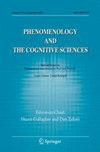“圣杯在哪里?”人工智能、常识和人类实用智能”
IF 1.9
1区 哲学
0 PHILOSOPHY
引用次数: 0
摘要
创造具有与人类智能相当的机器,即所谓的“人类水平”和“通用”智能,通常被视为人工智能(AI)研究的圣杯。然而,许多关于人工智能的著名讨论严重依赖于人类水平智能的概念来构建人工智能研究,但随后又依赖于人类认知能力的概念,包括“常识”,这些概念是粗略的、片面的、充满哲学色彩的,而且极具争议性。在这篇文章中,我们的目标是让人们认识到普通人类代理中涉及的实用智能的一些未被充分认识的特征。实用智能的这些特征隐含在我们的第一人称体验结构中,即具体的和情境的代理、审议和人际互动。我们认为,阐明这些特征及其含义揭示了两种形式的行动智能之间的根本区别,或者我们称之为“高效完成任务”与“智能参与活动”。这种区别有助于我们看到,在一些被广泛接受的关于人工智能中人类水平的智能的思考方式中,缺失了什么,以及人类的常识实际上是如何在概念上与实践智慧的理想联系在一起的,或者是关于如何行动和生活得更好的良好(规范)判断。最后,我们的分析,如果合理的话,也对一个重要的伦理问题有影响,即拥有与人类价值观一致的人工智能系统意味着什么,或者所谓的人工智能“价值一致”问题。本文章由计算机程序翻译,如有差异,请以英文原文为准。
“Where lies the grail? AI, common sense, and human practical intelligence”
Abstract The creation of machines with intelligence comparable to human beings—so-called "human-level” and “general” intelligence—is often regarded as the Holy Grail of Artificial Intelligence (AI) research. However, many prominent discussions of AI lean heavily on the notion of human-level intelligence to frame AI research, but then rely on conceptions of human cognitive capacities, including “common sense,” that are sketchy, one-sided, philosophically loaded, and highly contestable. Our goal in this essay is to bring into view some underappreciated features of the practical intelligence involved in ordinary human agency. These features of practical intelligence are implicit in the structure of our first-person experience of embodied and situated agency, deliberation, and human interaction. We argue that spelling out these features and their implications reveals a fundamental distinction between two forms of intelligence in action, or what we call “efficient task-completion” versus “intelligent engagement in activity.” This distinction helps us to see what is missing from some widely accepted ways of thinking about human-level intelligence in AI, and how human common sense is actually tied, conceptually, to the ideal of practical wisdom, or good (normative) judgment about how to act and live well. Finally, our analysis, if sound, also has implications for the important ethical question of what it means to have AI systems that are aligned with human values, or the so-called “value alignment” problem for artificial intelligence.
求助全文
通过发布文献求助,成功后即可免费获取论文全文。
去求助
来源期刊

Phenomenology and the Cognitive Sciences
PHILOSOPHY-
CiteScore
5.00
自引率
8.70%
发文量
72
期刊介绍:
Phenomenology and the Cognitive Sciences is an interdisciplinary, international journal that serves as a forum to explore the intersections between phenomenology, empirical science, and analytic philosophy of mind. The journal represents an attempt to build bridges between continental phenomenological approaches (in the tradition following Husserl) and disciplines that have not always been open to or aware of phenomenological contributions to understanding cognition and related topics. The journal welcomes contributions by phenomenologists, scientists, and philosophers who study cognition, broadly defined to include issues that are open to both phenomenological and empirical investigation, including perception, emotion, language, and so forth. In addition the journal welcomes discussions of methodological issues that involve the variety of approaches appropriate for addressing these problems. Phenomenology and the Cognitive Sciences also publishes critical review articles that address recent work in areas relevant to the connection between empirical results in experimental science and first-person perspective.Double-blind review procedure The journal follows a double-blind reviewing procedure. Authors are therefore requested to place their name and affiliation on a separate page. Self-identifying citations and references in the article text should either be avoided or left blank when manuscripts are first submitted. Authors are responsible for reinserting self-identifying citations and references when manuscripts are prepared for final submission.
 求助内容:
求助内容: 应助结果提醒方式:
应助结果提醒方式:


